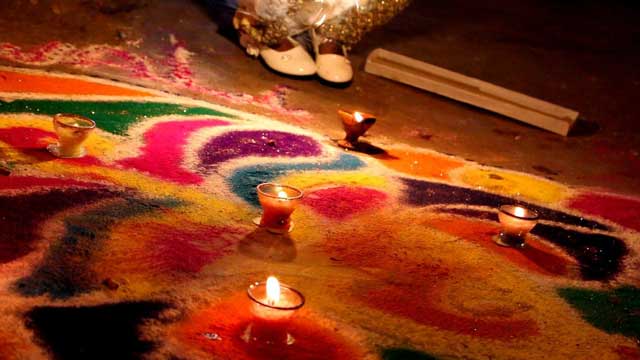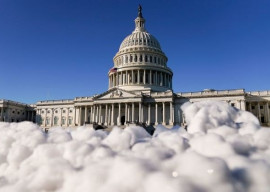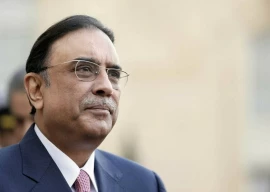
The Hindu community in the twin cities of Rawalpindi and Islamabad celebrated Diwali with religious devotion on Thursday.
Homes across the garrison city were lit with lamps, and Parsaad (religious food) was shared among community members as part of the festival.
Diwali celebrations took place at three main temples in Rawalpindi, including Krishna Temple in Saddar Cantt, Lal Kurti Temple, and the primary temple in Gracy Lines. Families gathered in beautifully adorned temples, where women and children dressed in colourful attire participated in hymns and prayers, celebrating with a sense of joy and community.
Rawalpindi, once home to a large Hindu community before Pakistan's independence, now hosts around 4,500 Hindus residing in Rawalpindi and Islamabad. The temples were decorated with lights for the occasion, and prayers were offered for Pakistan's prosperity, security, and development.
Heera Lal, President of the Hindu Welfare Society, emphasised the commitment of the community to Pakistan, saying, "We are Pakistanis first and then Hindus. The white colour of the national flag represents us, the minorities."
He also highlighted challenges the community faces, noting the lack of burial space in the city, which forces them to travel far for last rites. He called for designated spaces with secure facilities for Hindu burials.
Diwali, often called the Festival of Lights, is the largest Hindu celebration, marked by rows of illuminated lamps. Om Parkash Narain, Secretary General of the Hindu-Sikh-Christian Welfare Society, explained the meaning behind the festival's name, "Diwali is a derived form of 'Deepawali,' where 'deep' means light and 'awali' means a row, symbolising rows of lamps lit during the festival."
According to Heera Lal, Diwali celebrates the return of Lord Raam, his wife Seeta, and his brother Lakshman from a 14-year exile after the defeat of Raavan, the king of Lanka.
The festival begins with "Dhaan teras," considered a day to purchase gold or silver for good fortune, and continues for five days, each filled with traditional rituals.






1730379446-0/WhatsApp-Image-2024-10-31-at-17-56-13-(1)1730379446-0-270x192.webp)











COMMENTS
Comments are moderated and generally will be posted if they are on-topic and not abusive.
For more information, please see our Comments FAQ